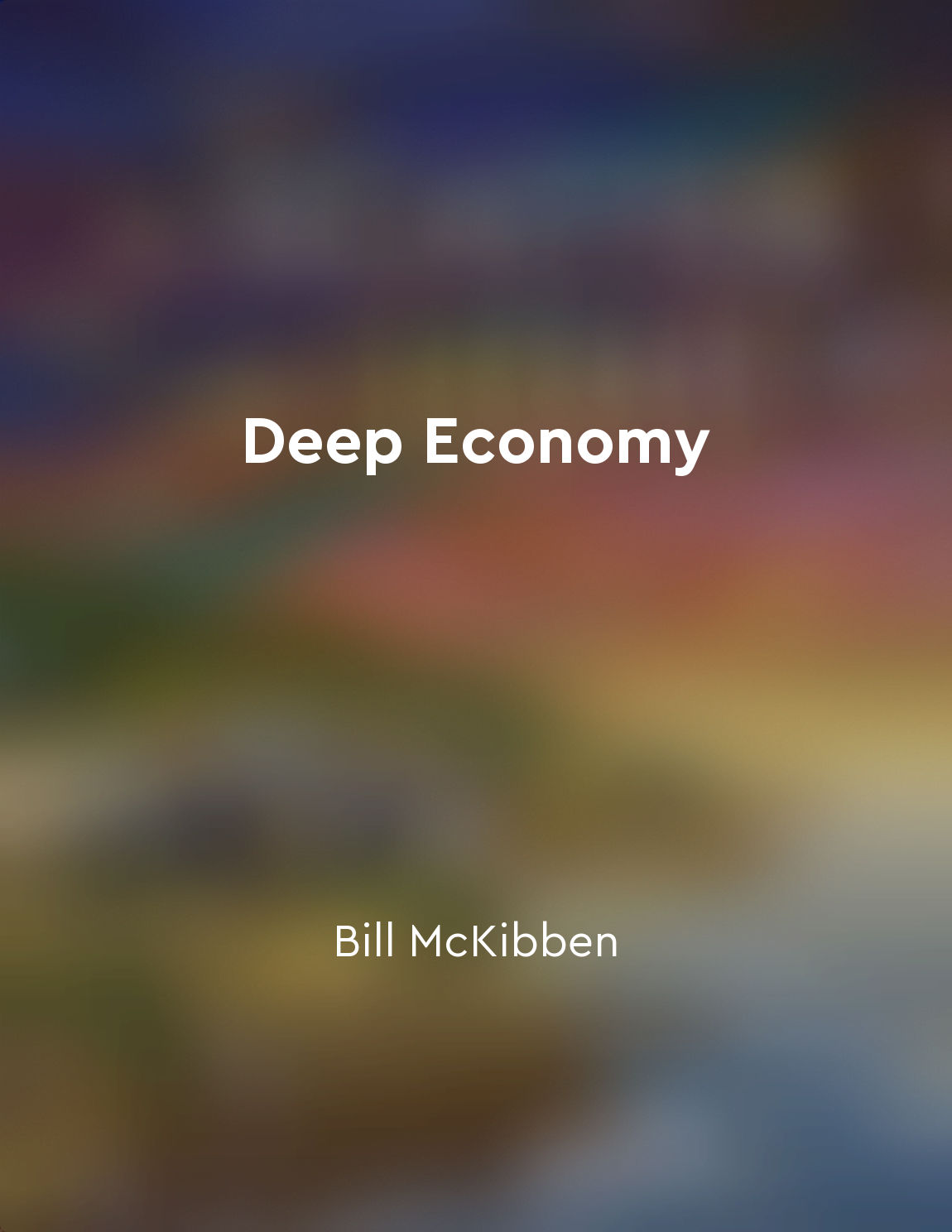Consumerism is detrimental to the planet from "summary" of Deep Economy by Bill McKibben
In our current world, the prevailing ideology promotes consumption as the ultimate goal of human existence. We are bombarded with messages that tell us to buy more, accumulate more, consume more. However, this incessant drive towards consumerism is wreaking havoc on the planet. The more we consume, the more resources we deplete, the more waste we generate, and the more damage we cause to the environment. Consumerism not only leads to the depletion of natural resources but also contributes significantly to climate change. The relentless pursuit of material possessions results in the extraction of fossil fuels, the burning of which releases greenhouse gases into the atmosphere, leading to global warming. The planet is already feeling the catastrophic effects of climate change, from rising sea levels to extreme weather events. If we continue down this path of unchecked consumerism, we are only hastening our own demise. Furthermore, consumerism perpetuates a culture of disposability and excess. Products are designed to be disposable, with planned obsolescence built in to ensure that we keep buying more. This culture of excess not only leads to the wasteful use of resources but also feeds into a cycle of overproduction and overconsumption. We buy things we don't need, often at the expense of our own well-being and that of the planet. To break free from the destructive cycle of consumerism, we must reevaluate our priorities and redefine what it means to live a good life. Instead of measuring our success by the things we own, we should focus on building relationships, fostering community, and finding fulfillment in experiences rather than possessions. By shifting our values away from consumerism and towards sustainability, we can create a more equitable and resilient world for ourselves and future generations. It is imperative that we recognize the detrimental impact of consumerism on the planet and take action to mitigate its effects. We must challenge the status quo, question the values that drive our consumption habits, and work towards a more sustainable and just future. Only by breaking free from the grip of consumerism can we hope to create a world that is truly thriving and in harmony with the natural world.Similar Posts
Communication barriers diminished
In our digitally connected world, communication barriers have significantly diminished. Thanks to advancements in technology, w...
Change starts with each one of us
The necessary changes are changes in us. The changes that we must make are changes in our lives. There is no one else to blame....
Collaboration across borders became essential
In today's interconnected world, it has become increasingly imperative for individuals and organizations to work together acros...
The power to change lies in our hands
In the face of a rapidly changing climate, it is easy to feel overwhelmed and powerless. The scale of the problem can seem insu...
The food we eat plays a significant role
When we consider the impact of our food choices on the environment, it becomes evident that our daily actions have far-reaching...

Social inequality persisted despite overall prosperity
Although the postwar period has seen unprecedented economic growth and prosperity, it is important to acknowledge that this new...
Embrace simplicity to find true fulfillment
The idea we are exploring here is the notion that by simplifying our lives, we can actually find a deeper sense of fulfillment....
Geopolitics influence economies
Geopolitics and economics are deeply intertwined, with geopolitical events often having a significant impact on economies aroun...

